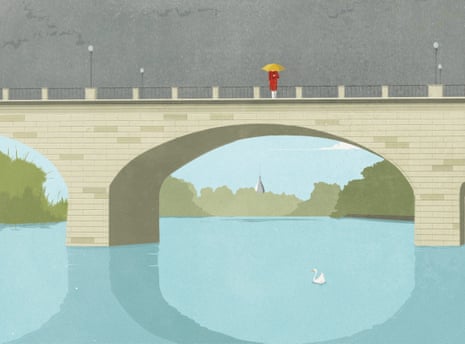I can’t trace a line of separation between fiction and nonfiction. Let’s say I have an idea for a story in which, at the age of 48, in an empty country house in winter, I am locked in the shower cubicle, I can’t turn the water off, the hot water is used up. Did that really happen to me? No. Did it happen to a person I know? Yes. Was that person 48? No.
Why then do I construct a story in the first person, as if it had happened to me? Why do I say it was winter when, in fact, it was summer, why do I say the hot water was used up when it wasn’t, why do I make the woman’s imprisonment last for hours, when the actual person got out in five minutes, why do I complicate the story with many other events, with feelings, anxieties, frightened reflections, when the event recounted is a small, unimportant episode? Because – I could answer – I am trying to make fiction by following a course that Gogol summarised like this: Give me any small everyday event and I will make a five-act play.
But I don’t intend to answer like that. I want to offer the opposite example. I’m tired of fiction, I no longer see a reason to go hunting for anecdotes from which to make five-act plays. So I talk to my friend who was locked in the shower for a few minutes with the intention of recounting faithfully what happened. I go there with my iPad and I even make a video, I want to stick as closely to the facts as possible.
Then I go home and set to work. I read and reread my notes, I look again and again at the video, I listen over and over: and I’m baffled. Why does my friend get muddled when she talks about the defective cubicle? Why are the first well-considered sentences followed by faulty clauses, an accentuation of the dialectal cadence? Why, when she reports to me her trivial experience, does she look insistently to the right? What is there on the right that I can’t see in the recording and didn’t see in reality? How will I work when I move on to the writing? Will I clean up that language? Will I imitate her confusion? Will I lessen the confusion in order to minimise it, will I exaggerate it to make it very obvious? Will I try to hypothesise what’s hidden on the right? And what if nothing is hidden?
In other words, my effort at faithfulness cannot be separated from the search for coherence, the imposition of order and meaning, even the imitation of the lack of order and meaning. Because writing is innately artificial, its every use involves some form of fiction. The dividing line is rather, as Virginia Woolf said, how much truth the fiction inherent in writing is able to capture.
